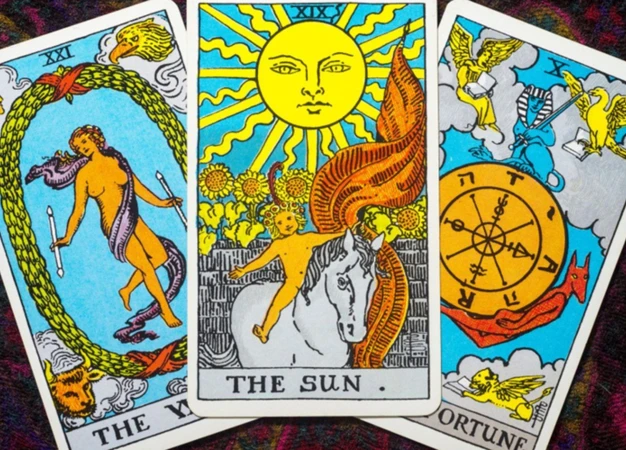Tarot reading has gained significant popularity in recent years, especially within the realm of self-improvement movements. People are increasingly turning to tarot as a tool for gaining insight, clarity, and guidance on their personal journeys of growth and transformation. However, amidst this surge in interest, misconceptions and misunderstandings about tarot and its role in self-improvement persist. In this article, we will dive deep into the world of tarot reading, exploring its history, how it works, and its relevance in self-improvement. We will also provide practical tips on how to use tarot for personal growth, as well as examine real-life case studies where tarot has positively impacted individuals. By the end, we hope to dispel common misconceptions and shed light on the power of tarot as a tool for self-reflection, empowerment, and achieving personal goals.
Contents
- Understanding Self-Improvement Movements
- The Basics of Tarot Reading
- The Relevance of Tarot Reading in Self-Improvement
- How to Use Tarot for Self-Improvement
- Tarot Reading and Personal Growth Case Studies
- Common Misconceptions about Tarot Reading and Self-Improvement
- Conclusion
-
Frequently Asked Questions
- 1. Is tarot reading a form of fortune-telling?
- 2. Can tarot readings help me make important life decisions?
- 3. Do I need to have psychic abilities to read tarot cards?
- 4. Is tarot reading connected to any specific religion or belief system?
- 5. Can tarot readings reveal information about my past or present?
- 6. How often should I have a tarot reading?
- 7. Can tarot readings help me overcome limiting beliefs?
- 8. Can tarot readings provide specific advice or solutions?
- 9. Can I use tarot readings in combination with other self-improvement practices?
- 10. Is tarot reading scientifically validated?
- References
Understanding Self-Improvement Movements
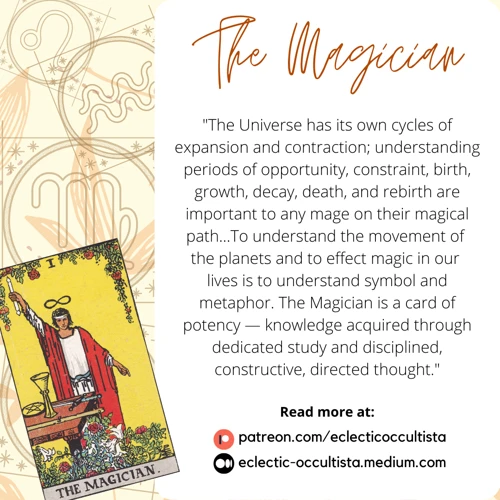
Understanding Self-Improvement Movements
Self-improvement movements have witnessed a significant rise in popularity in recent years. These movements focus on personal growth, self-reflection, and the pursuit of happiness and fulfillment. They encompass a wide range of practices and philosophies aimed at enhancing various aspects of individuals’ lives, including mental, emotional, and spiritual well-being. Self-improvement enthusiasts seek out different tools and techniques to aid them on their journeys, and tarot reading has emerged as an influential practice within these movements. The influence of tarot can be seen in diverse areas, such as fashion trends, pop culture, and social media. For instance, tarot-inspired fashion has gained traction with designs featuring tarot symbols and imagery, highlighting the growing influence of tarot in the fashion industry. Tarot reading has become a popular topic on social media platforms, where individuals share their experiences and insights gained from tarot card interpretations. The rise of tarot in pop culture is also evident in movies, TV shows, and literature, further solidifying its position within the self-improvement sphere. Tarot’s integration with these cultural and social elements makes it an intriguing and accessible tool for individuals seeking personal growth and self-transformation.
The Basics of Tarot Reading
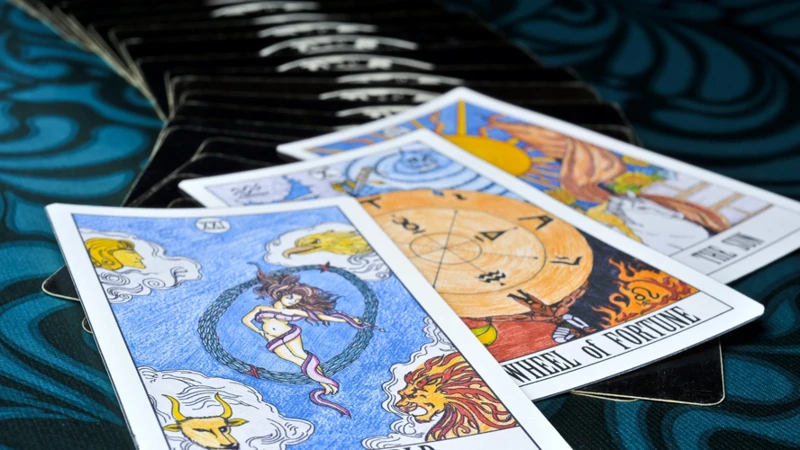
The Basics of Tarot Reading
Tarot reading is an ancient practice that involves using a deck of cards to gain insight and guidance. The tarot deck typically consists of 78 cards, divided into two main categories: the Major Arcana and the Minor Arcana. The Major Arcana cards represent significant life lessons and key events, while the Minor Arcana cards delve into the everyday aspects of life. Each card in the deck holds symbolic meaning and can be interpreted through various spreads and layouts. During a tarot reading, the reader focuses on the querent’s question or situation and intuitively selects and interprets the cards to provide guidance and illumination. While some may view tarot reading as fortune-telling, it is more accurate to understand it as a tool for self-reflection and personal growth. The practice allows individuals to tap into their own intuition and access subconscious wisdom, enabling them to gain valuable insights into their lives and make informed decisions. Tarot reading has gained popularity in recent years, partly due to its influence on fashion trends and its integration into pop culture through movies, TV shows, and literature. Additionally, the practice has found a home in social media platforms, where tarot enthusiasts share their experiences and interpretations, further contributing to its widespread recognition and use. Tarot reading is a dynamic and captivating tool that can be utilized for self-improvement and introspection, offering individuals a means to explore their inner worlds and navigate life’s challenges.
1. History and Origins of Tarot
History and Origins of Tarot
The history and origins of tarot can be traced back centuries, with its roots deeply embedded in various cultures and traditions. The exact origins of tarot remain shrouded in mystery, but it is believed to have originated in the 15th century in Europe, specifically in Italy and France. Initially, tarot was not associated with divination or fortune-telling but was instead used as a playing card game. It wasn’t until later that the mystical and esoteric aspects of tarot started to gain prominence.
Tarot decks consist of a set of 78 cards, divided into two main categories: the Major Arcana and the Minor Arcana. The Major Arcana represents major life events and spiritual lessons, while the Minor Arcana relates to everyday situations and experiences. Each card in the deck carries symbolic imagery and meanings that can be interpreted in various ways.
The precise origins of tarot symbolism and imagery remain a subject of debate. Some scholars believe that tarot cards were influenced by ancient Egyptian hieroglyphs, while others suggest connections to Jewish Kabbalah and medieval Christian symbolism. Regardless of its origins, tarot gradually evolved into a tool for self-reflection, spiritual insight, and personal growth.
Over time, tarot has become deeply ingrained in different cultures and has influenced various aspects of society, including fashion trends, pop culture, and social media. Its symbolism and aesthetics have inspired designers and artists, leading to the incorporation of tarot imagery into clothing, accessories, and home decor. The influence of tarot in fashion trends is apparent in the popularity of tarot-inspired designs, further cementing its place as a cultural phenomenon. The rise of tarot in pop culture, with its portrayal in movies, TV shows, and literature, has contributed to its widespread recognition and adoption.
As tarot continues to gain popularity, especially through its presence on social media platforms, individuals of all backgrounds are discovering its power as a tool for self-reflection, personal exploration, and spiritual growth. The historical and cultural significance of tarot has lent it an air of mystique and intrigue, making it an enduring practice in the realm of self-improvement and personal development.
2. How Tarot Works
How Tarot Works
Tarot works by tapping into the subconscious mind and the universal energies that surround us. A typical tarot deck consists of 78 cards, each with its own symbolism and meaning. The deck is divided into two main sections: the Major Arcana and the Minor Arcana.
1. Major Arcana: This portion of the deck consists of 22 cards that represent significant life events, archetypes, and spiritual lessons. Each card carries its own unique energy and encompasses various themes such as love, transformation, and inner growth. The Major Arcana cards act as guides, providing insightful messages and profound reflections on our life journey.
2. Minor Arcana: The Minor Arcana contains 56 cards divided into four suits – Wands, Cups, Swords, and Pentacles. These suits correspond to the elements of fire, water, air, and earth, respectively. Each suit holds its own set of meanings and represents different aspects of our daily lives, such as creativity, emotions, thoughts, and material abundance. The Minor Arcana cards offer detailed insights into specific situations and events, allowing for nuanced interpretations and guidance.
When a tarot reading is conducted, the reader shuffles the deck while focusing on a specific question or area of concern. The cards are then laid out in a spread, which can vary in size and layout depending on the reading’s purpose. The reader interprets the cards’ symbolism and their positions within the spread to provide meaningful insights and guidance. It’s important to note that tarot is not a fortune-telling method but rather a tool for self-reflection and exploration. The cards serve as triggers for intuition, enabling individuals to tap into their inner wisdom and uncover hidden truths. Through the process of tarot reading, individuals gain a deeper understanding of themselves, their circumstances, and the potential paths that lay ahead. Tarot’s ability to unravel the subconscious and connect with universal energies has contributed to its enduring influence, making it a valuable tool in self-improvement practices and beyond. To learn more about the influence of tarot, read our article on the popularity of tarot reading on social media.
3. Tarot and Intuition
3. Tarot and Intuition
One of the fundamental aspects of tarot reading is its connection to intuition. Intuition refers to the innate ability to understand or sense something without the need for conscious reasoning. Tarot cards serve as powerful tools for accessing and tapping into our intuition. When we engage with the cards, we enter a state of heightened awareness and receptiveness. The symbolism and imagery present in the tarot cards act as prompts, triggering our intuitive faculties and allowing us to access deeper layers of insight and understanding. Tarot reading encourages individuals to trust their own inner wisdom and rely on their intuitive guidance. It provides a structured framework that helps unlock and interpret the intuitive messages that arise during a reading. By paying attention to the subtle nuances, symbols, and impressions that emerge, individuals can develop a heightened sense of self-awareness and intuitive perception. Through regular practice and experience, tarot readers become more adept at discerning and interpreting these intuitive messages, thereby gaining valuable insights into their personal journeys of self-improvement. The integration of tarot and intuition has been instrumental in the tarot’s influence on various aspects of society, including its impact on fashion trends and pop culture. The intuitive nature of tarot resonates with individuals seeking a deeper understanding of themselves and the world around them, further fueling its popularity within self-improvement movements.
The Relevance of Tarot Reading in Self-Improvement
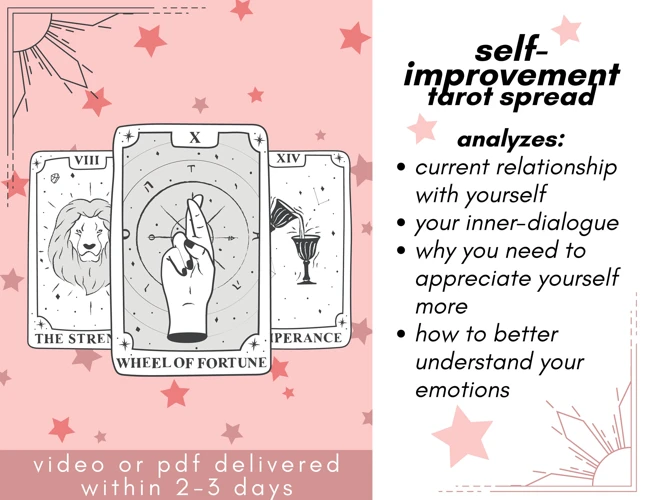
Tarot reading holds great relevance in the realm of self-improvement, offering individuals a unique and insightful tool for personal growth and self-reflection. Firstly, tarot allows for self-reflection and insight by providing a framework for exploring one’s thoughts, emotions, and experiences. The symbolism and imagery of the tarot cards act as a mirror, reflecting the inner landscape of the individual, enabling them to gain a deeper understanding of themselves. Secondly, tarot helps in identifying patterns and limiting beliefs that may be holding individuals back from their full potential. By analyzing the cards and their meanings, individuals can uncover repetitive patterns in their thoughts and behaviors, enabling them to break free from negative cycles and embrace positive change. Finally, tarot empowers individuals to set goals and take action towards personal growth. The cards can serve as a source of inspiration and guidance, assisting individuals in defining their aspirations and outlining steps to achieve them. Through tarot, individuals can tap into their intuition, harness their inner strength and navigate their paths towards self-improvement. The influence of tarot can also be seen in various aspects of popular culture, including its impact on fashion trends (/influence-tarot-fashion-trends/) and its presence in social media (/rise-tarot-reading-pop-culture/), further solidifying its relevance in self-improvement movements.
1. Self-Reflection and Insight
Self-reflection is a fundamental aspect of self-improvement, and tarot reading provides a powerful avenue for introspection. Through the interpretation of tarot cards, individuals are encouraged to reflect on their thoughts, feelings, and experiences. The symbolism and imagery depicted in the cards serve as a mirror, allowing individuals to gain deeper insights into themselves and their lives. Tarot can uncover hidden aspects of one’s personality, desires, fears, and motivations, helping individuals develop a greater understanding of their strengths and weaknesses. The process of self-reflection facilitated by tarot allows individuals to examine their patterns, behaviors, and belief systems objectively. It encourages them to question their assumptions and perspectives, opening up new possibilities for personal growth.
By engaging in tarot readings, individuals gain valuable insight into their current circumstances and the underlying factors influencing their lives. This newfound awareness can empower individuals to make more conscious choices and take proactive steps towards self-improvement. Tarot acts as a catalyst for self-discovery, enabling individuals to uncover hidden opportunities, untapped potentials, and areas that require attention and growth. Through self-reflection and the guidance provided by tarot, individuals can embark on a journey of personal transformation and self-improvement, aligning their actions and choices with their true desires and aspirations.
2. Identifying Patterns and Limiting Beliefs
2. Identifying Patterns and Limiting Beliefs
Tarot reading plays a crucial role in helping individuals identify patterns and limiting beliefs that may be holding them back from reaching their full potential. When conducting a tarot reading, the cards serve as a mirror, reflecting back to the individual their subconscious thoughts, emotions, and behaviors. By exploring the symbolism and interpretations of the cards, individuals can gain valuable insights into recurring patterns in their lives. These patterns may involve relationships, career choices, or personal habits that are no longer serving them. The tarot cards provide a visual representation of these patterns, allowing individuals to better understand the root causes and triggers behind them.
Tarot reading can reveal deep-seated limiting beliefs that individuals may not even be aware of. Limiting beliefs are negative thoughts or perceptions that hold individuals back from achieving their goals or living a fulfilling life. These beliefs often stem from past experiences, societal conditioning, or self-doubt. Through tarot, individuals can uncover these subconscious beliefs and bring them into conscious awareness. The cards act as a catalyst for self-reflection and introspection, enabling individuals to challenge and transform their limiting beliefs.
One of the powerful aspects of tarot is its ability to provide a fresh perspective on familiar situations. By laying out the cards and examining their meanings, individuals can step outside of their comfort zones and view their circumstances from a new angle. This can be especially valuable in identifying blind spots or ingrained thought patterns that may be hindering personal growth. Tarot helps individuals break free from the confines of their own limited perspectives and open up to new possibilities.
Tarot reading serves as a valuable tool for identifying patterns and limiting beliefs that may be holding individuals back. The cards provide a visual representation of these patterns, enabling individuals to gain deeper insights and understanding. By challenging and transforming these limiting beliefs, individuals can pave the way for personal growth, self-improvement, and the fulfillment of their goals and aspirations.
3. Setting Goals and Taking Action
3. Setting Goals and Taking Action
One of the key aspects of self-improvement is setting goals and taking action towards achieving them. Tarot reading can play a vital role in this process by providing insight, guidance, and motivation. When using tarot cards for goal-setting, individuals can draw specific cards that represent their desired outcomes or areas of focus. These cards can serve as visual reminders and symbols of the goals they wish to achieve. By referring to these cards regularly, individuals can stay aligned with their intentions and keep their goals at the forefront of their minds.
Additionally, tarot cards can help individuals identify potential obstacles or challenges that may arise during their journey towards their goals. These cards can highlight areas where individuals may need to develop new skills, overcome limiting beliefs, or make necessary adjustments to their plan.
Tarot readings can also inspire individuals to take action. The insights gained from the cards can provide a sense of clarity and direction, motivating individuals to move forward with confidence. The symbolism and imagery of the cards can fuel their imagination and creativity, helping them brainstorm new ideas or approaches to achieve their goals.
To incorporate tarot into the goal-setting process, individuals can create personalized tarot spreads specifically designed for their objectives. They can draw cards that represent different aspects of their goals, such as actions to take, resources needed, or potential outcomes. By analyzing the cards and reflecting on their meanings, individuals can gain valuable insights and develop a plan of action that is aligned with their goals.
Taking action is a crucial step in self-improvement, and tarot can provide the necessary guidance and motivation to empower individuals to move forward. By setting goals with tarot and actively working towards them, individuals can experience a deeper sense of fulfillment and accomplishment in their self-improvement journey.
How to Use Tarot for Self-Improvement
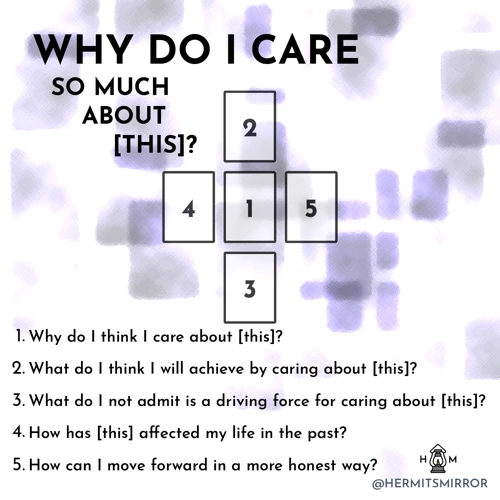
Using tarot for self-improvement involves a thoughtful and intentional approach to harnessing the wisdom of the cards. Firstly, it begins with selecting a tarot deck that resonates with you on a personal level, as the imagery and symbolism are crucial for interpretation. Establishing a strong connection with your deck is essential. Once you have your deck, incorporating daily or weekly self-reflection spreads is a valuable practice. These spreads allow you to explore specific aspects of your life, gain insight, and connect with your intuition. Integration with other self-improvement practices can enhance your tarot readings, such as journaling, meditation, or affirmations. By combining these practices, you create a powerful synergy that deepens your self-awareness and guides your personal growth journey. Tarot, when used effectively, becomes a powerful tool for introspection, self-discovery, and making informed decisions on your path toward holistic well-being.
1. Choosing and Connecting with a Tarot Deck
1. Choosing and Connecting with a Tarot Deck
Choosing the right tarot deck is an essential part of the tarot reading process. Each deck has its unique symbolism and energy, which can profoundly impact the reading experience. When selecting a tarot deck, it is crucial to consider your personal preferences, intuition, and connection with the cards. Here are some factors to consider:
– Intuitive attraction: Trust your intuition when choosing a tarot deck. Look at different decks and observe how you feel when viewing the artwork, colors, and overall aesthetics. Pay attention to the deck that resonates with you the most, as this intuitive connection will enhance your interpretations.
– Symbolism and imagery: Tarot decks come in various artistic styles and interpretations. Some decks may have traditional symbolism, while others may have a more modern or abstract approach. Research different deck options and see which imagery and symbolism align with your personal understanding and interpretation of the cards.
– Deck structure and guidebook: Consider the deck’s structure and whether it aligns with your learning style. Some decks follow the traditional Rider-Waite-Smith system, while others may have alternative structures or interpretations. Additionally, explore the accompanying guidebook to see if it provides comprehensive explanations and interpretations that resonate with you.
– Energy and vibration: Tarot decks carry their unique energy and vibration. Some may feel more gentle and nurturing, while others may have a bolder or more intense energy. Hold the deck in your hands, shuffle the cards, and pay attention to the overall energy you perceive. Choose a deck that feels comfortable and aligned with your energetic preferences.
It’s important to note that there is no right or wrong choice when it comes to selecting a tarot deck. Trust your instinct and choose the deck that speaks to you personally. Remember, the tarot deck you choose will be a tool for self-reflection and self-improvement, so it’s crucial to have a strong connection with it.
2. Daily or Weekly Self-Reflection Spreads
Daily or Weekly Self-Reflection Spreads
One powerful way to utilize tarot for self-improvement is by incorporating daily or weekly self-reflection spreads into your practice. These spreads are designed to provide insights, guidance, and opportunities for self-discovery on a regular basis. Here are a few methods to consider:
1. Daily Single Card Pull: Start each day by drawing a single card from your tarot deck. Reflect on the meaning and symbolism of the card, considering how it might apply to your current situation or state of mind. This simple practice can offer valuable insights and set an intention for the day ahead.
2. Weekly Three-Card Spread: This spread involves drawing three cards to represent the past, present, and future. Each card provides a perspective on different aspects of your life or a specific question or area of focus. Reflect on the connections and themes that emerge, and contemplate how they can guide your decisions and actions during the week.
3. Theme of the Month Spread: At the beginning of each month, select a card to represent the overarching theme or energy for the upcoming weeks. Use this card as a focal point for self-reflection and exploration throughout the month, allowing it to inform your experiences and decisions.
4. Celtic Cross Spread: This is a more comprehensive spread that offers a deeper understanding of a specific situation or challenge. It involves laying ten cards in a specific pattern to examine various aspects, including past influences, current obstacles, and potential outcomes. Performing this spread on a weekly basis can provide valuable insights and stimulate personal growth.
Remember, the key to effective self-reflection spreads is to approach them with an open mind and a willingness to explore different perspectives. Allow the tarot cards to serve as a tool for introspection and self-awareness, guiding you towards a deeper understanding of yourself and your journey of self-improvement.
3. Integration with Other Self-Improvement Practices
3. Integration with Other Self-Improvement Practices
Tarot reading can seamlessly integrate with other self-improvement practices, amplifying their effectiveness and providing a holistic approach to personal growth. One common practice that complements tarot reading is journaling. By incorporating tarot reflections into a journaling practice, individuals can deepen their self-reflection and gain valuable insights for personal development. They can document their tarot readings, record their interpretations, and reflect on the meanings behind the cards. This integration of tarot and journaling allows for a powerful self-exploration process.
Another self-improvement practice that synergizes well with tarot reading is meditation. Before or after a tarot reading, individuals can engage in a meditation session to calm the mind and create an open and receptive state. Meditation helps to enhance focus, intuition, and connection to one’s inner wisdom, allowing for a more meaningful and insightful tarot experience. The combination of tarot and meditation can lead to deep introspection and self-awareness.
Additionally, tarot reading can be integrated with mindfulness practices. Mindfulness involves being fully present in the moment and aware of one’s thoughts and emotions. By incorporating tarot readings into mindfulness exercises, individuals can use the cards as a tool to observe their thoughts and emotions non-judgmentally. It enables them to gain clarity and a deeper understanding of their inner workings, facilitating personal growth and self-acceptance.
Tarot can be used alongside affirmations and visualization techniques. After a tarot reading, individuals can select cards that represent their desired outcomes or goals and use them as visual prompts during affirmation practices. The combination of affirmations, visualizations, and tarot symbolism can reinforce positive beliefs and intentions, aiding in personal transformation and manifestation.
The integration of tarot with other self-improvement practices creates a powerful synergy that enhances self-reflection, mindfulness, meditation, and goal-setting. This holistic approach fosters a deeper understanding of oneself and supports individuals on their path to personal growth and self-improvement.
Tarot Reading and Personal Growth Case Studies
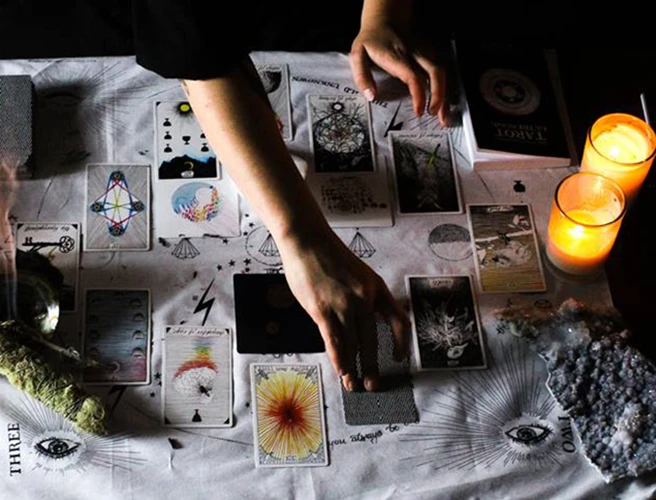
Tarot Reading and Personal Growth Case Studies
Tarot reading has been found to be a powerful catalyst for personal growth and transformation. Through case studies, we can see the profound impact that tarot has had on individuals’ lives. Case study #1 focuses on how tarot helped an individual overcome self-doubt and enhance their confidence. By using tarot as a tool for self-reflection and introspection, they were able to identify their limiting beliefs and negative thought patterns. The insights gained from the cards empowered them to challenge these beliefs and replace them with positive affirmations, leading to increased self-confidence and self-acceptance. Case study #2 explores how tarot aided in healing emotional wounds and finding inner peace. The individual used tarot as a therapeutic tool to explore their feelings and emotions, allowing them to process and release deep-seated pain. Through this process, they were able to find forgiveness, cultivate self-love, and create space in their lives for healing and emotional well-being. In case study #3, we delve into how tarot helped someone cultivate a mindset of abundance and success. By using tarot as a guide, they were able to identify their goals, visualize their desired outcomes, and take actionable steps towards achieving them. The tarot cards provided guidance and encouragement, bolstering their belief in their own abilities and creating a positive mindset of abundance and success. These case studies highlight the transformative and growth-inducing potential of tarot reading, making it a valuable tool for personal development.
1. Overcoming Self-Doubt and Enhancing Confidence
Overcoming Self-Doubt and Enhancing Confidence
Tarot reading can play a vital role in helping individuals overcome self-doubt and enhance their confidence. Self-doubt can be a significant barrier to personal growth, preventing individuals from reaching their full potential. Tarot cards serve as a powerful tool for self-reflection and introspection, allowing individuals to delve deep into their subconscious and uncover limiting beliefs and negative thought patterns that contribute to self-doubt. By bringing these thoughts and beliefs to the surface, tarot readings provide individuals with the opportunity to examine them critically and challenge their validity.
Through tarot, individuals can gain valuable insights and guidance on how to overcome self-doubt and cultivate self-confidence. The cards act as mirrors, reflecting aspects of the individual’s psyche and illuminating areas where growth and self-empowerment are needed. Tarot readings can offer reassurance, encouragement, and new perspectives that can help individuals build a more positive self-image and belief in their abilities.
Tarot spreads specifically designed to address self-doubt can be used to explore the underlying causes and triggers of these feelings. By identifying the root causes of self-doubt through the cards, individuals can develop a deeper understanding of themselves and work on cultivating self-compassion and self-acceptance.
Tarot readings also provide a tangible reminder of an individual’s strengths, talents, and past accomplishments. These reminders can serve as a powerful antidote to self-doubt, boosting confidence and self-esteem. Through the symbolism and messages presented by the cards, individuals are encouraged to embrace their unique qualities and embrace their full potential. Tarot’s ability to provide clarity, validation, and support can be instrumental in helping individuals overcome self-doubt, build confidence, and take empowering strides towards personal growth.
2. Healing Emotional Wounds and Finding Inner Peace
2. Healing Emotional Wounds and Finding Inner Peace
Tarot reading can be a powerful tool for healing emotional wounds and finding inner peace. The act of laying out tarot cards and exploring their symbolism can help individuals gain insight into their emotional state and the underlying causes of their pain. Each card represents a different aspect of human experience, and through interpretation, individuals can uncover repressed emotions, unresolved traumas, and deep-seated beliefs that contribute to their emotional wounds.
The cards act as a mirror, reflecting back the subconscious thoughts and emotions that may be influencing an individual’s emotional well-being. By bringing these hidden aspects to light, tarot enables individuals to confront and process their emotions, facilitating the healing process. The imagery and symbolism in tarot cards can evoke specific emotions and provide a visual representation of the individual’s inner landscape, making it easier to identify and work through emotional blockages.
Tarot reading can provide guidance on how to find inner peace. The cards can offer insights into potential paths of healing, self-care practices, and necessary personal boundaries. Through the intuitive interpretation of tarot, individuals can gain clarity on the steps they need to take to achieve emotional balance and peace of mind.
Tarot reading is not meant to replace professional therapy or counseling, but it can complement these practices by providing additional insights and perspectives. It encourages individuals to explore their emotions in a safe and self-reflective manner, empowering them to take control of their emotional well-being and work towards healing. By engaging with the tarot, individuals can embark on a journey of self-discovery, self-compassion, and emotional healing, ultimately finding inner peace.
3. Cultivating a Mindset of Abundance and Success
3. Cultivating a Mindset of Abundance and Success
Cultivating a mindset of abundance and success is a fundamental aspect of personal growth and self-improvement, and tarot reading can play a significant role in this process. Tarot cards serve as powerful tools for shifting perspective and gaining a deeper understanding of oneself. With regards to abundance and success, tarot can help individuals identify their limiting beliefs, uncover hidden fears or doubts, and provide guidance on how to overcome these obstacles. Through tarot readings, individuals can explore their desires, aspirations, and potential pathways towards achieving their goals. The symbolism and messages within tarot cards can inspire individuals to adopt a mindset of abundance, encouraging them to believe in their ability to attract success and create opportunities for themselves. Specific tarot spreads designed for abundance and success can be utilized to gain insight into areas such as career, finances, and personal growth. By regularly engaging with tarot in the context of abundance and success, individuals can develop a more positive and empowered mindset, allowing them to manifest their goals and realize their fullest potential.
Common Misconceptions about Tarot Reading and Self-Improvement
Common Misconceptions about Tarot Reading and Self-Improvement
There are several common misconceptions surrounding tarot reading and its role in self-improvement. Firstly, many people mistakenly believe that tarot reading is synonymous with fortune-telling. However, tarot is not about predicting the future with absolute certainty. Instead, it provides guidance, insight, and potential outcomes based on the energy and circumstances surrounding a person’s situation. Another misconception is that tarot reading leads to dependence on external guidance, making individuals reliant on the cards for decision-making. In reality, tarot is a tool for self-reflection and empowerment, encouraging individuals to trust their intuition and inner wisdom. Lastly, some skeptics argue that tarot lacks scientific evidence and is purely based on superstition. While tarot may not have empirical evidence, it can still offer valuable insights and serve as a catalyst for personal growth. It is important to approach tarot reading with an open mind and view it as a complementary practice within the broader scope of self-improvement.
1. Tarot Reading as Fortune-Telling
Tarot Reading as Fortune-Telling
One common misconception about tarot reading is that it is purely a practice of fortune-telling. While tarot does provide insights into potential outcomes and possibilities, it is important to understand that tarot is not centered around predicting the future with absolute certainty. Rather, tarot reading is a tool for self-reflection, introspection, and gaining deeper understanding of oneself and one’s circumstances. The cards themselves serve as a visual and symbolic representation of various aspects of life, and the reader interprets these symbols to uncover insights and guidance. Tarot readings are not meant to be taken as fixed prophecies, but rather as reflections of the current energies and influences at play in one’s life. The true essence of tarot lies not in predicting exact events, but in empowering individuals to make informed choices, navigate challenges, and tap into their own intuition and wisdom. It is an invitation to explore the present moment, gain clarity, and nurture personal growth. Tarot reading goes beyond fortune-telling, offering a holistic approach to self-improvement and self-discovery.
2. Dependence on External Guidance
2. Dependence on External Guidance
One common misconception about tarot reading in the context of self-improvement is the notion of dependence on external guidance. Some skeptics argue that relying on tarot cards for guidance implies a lack of individual agency and decision-making skills. However, the role of tarot in self-improvement is not about surrendering personal power or blindly following external advice.
Tarot cards serve as a tool for self-reflection and introspection, offering insights and perspectives that may not be readily apparent. Rather than depending solely on external guidance, tarot empowers individuals to tap into their own intuition and inner wisdom. The interpretation of the cards is highly subjective and personalized, allowing individuals to connect with their intuition and make choices that align with their authentic selves.
Tarot reading encourages individuals to engage in profound self-inquiry, helping them explore their desires, fears, and emotions. The process enables individuals to better understand themselves, their motivations, and the underlying factors that contribute to their current situations. By fostering self-awareness and reflection, tarot reading stimulates personal growth and empowers individuals to make informed decisions and take purposeful actions.
It is essential to view tarot as a tool that facilitates self-guidance rather than an external authority dictating one’s choices. The cards serve as a catalyst for inner exploration and self-discovery, complementing one’s existing knowledge and experiences. Ultimately, the aim is for individuals to develop a deep sense of self-trust and rely on their intuitive insights, using the tarot as a supportive resource along their self-improvement journey.
3. Lack of Scientific Evidence
3. Lack of Scientific Evidence
One common misconception surrounding tarot reading in the context of self-improvement is the belief that it lacks scientific evidence to support its effectiveness. Critics argue that tarot is simply a form of divination or pseudo-science, lacking any empirical basis. However, it’s important to recognize that tarot is not meant to be a scientifically validated practice, but rather a tool for introspection, self-reflection, and personal growth.
Scientific methods typically rely on systematic observation, experimentation, and quantifiable measurements to produce conclusive results. While tarot may not fit within the scope of traditional scientific inquiry, it offers a different approach to gaining insight and understanding. Tarot readings are subjective experiences that rely on symbolism, intuition, and the interpretation of archetypal imagery. The cards act as prompts, inviting individuals to tap into their subconscious and explore their thoughts, emotions, and beliefs.
The lack of scientific evidence should not discount the value and impact that tarot can have in self-improvement. Personal growth is a deeply individual and subjective process, and what may work for one person may not work for another. Tarot reading provides a unique avenue for self-exploration and self-awareness, allowing individuals to connect with their inner wisdom and uncover new perspectives.
It is worth noting that an increasing body of research in fields such as psychology and neuroscience highlight the importance of practices that promote self-reflection, mindfulness, and intuition in personal development. These studies support the idea that self-improvement is not solely dependent on empirical evidence, but also on subjective experiences and personal insights.
Ultimately, the efficacy of tarot reading in self-improvement lies in the individual’s willingness to engage with the cards, reflect on the messages received, and take action based on the insights gained. While it may not align with the traditional standards of scientific evidence, tarot holds its own unique place in the realm of personal growth and self-improvement as a tool for self-reflection and inner exploration.
Conclusion
Conclusion
Tarot reading has proven to be a valuable tool in the realm of self-improvement. Its ability to provide self-reflection, insight, and guidance makes it a valuable companion on the journey of personal growth and transformation. Through tarot, individuals can gain a deeper understanding of themselves, identify patterns and limiting beliefs, and set actionable goals for their self-improvement journey. Tarot can be used in a variety of ways, from daily or weekly self-reflection spreads to integration with other self-improvement practices. Real-life case studies demonstrate how tarot has helped individuals overcome self-doubt, heal emotional wounds, and cultivate a mindset of abundance and success. Despite misconceptions surrounding tarot reading and its lack of scientific evidence, its relevance and effectiveness in self-improvement movements cannot be denied. It is a powerful tool for introspection and personal growth. As self-improvement continues to gain popularity, tarot reading will likely maintain its role as an essential practice for individuals seeking guidance, empowerment, and the realization of their true potential.
Frequently Asked Questions
1. Is tarot reading a form of fortune-telling?
No, tarot reading is not primarily about predicting the future. While it can offer insights into potential outcomes, its main focus is on providing guidance, self-reflection, and personal insight.
2. Can tarot readings help me make important life decisions?
Yes, tarot readings can offer valuable insights and perspectives that can assist you in making informed decisions. They can help you gain clarity and consider different aspects of a situation or choice.
3. Do I need to have psychic abilities to read tarot cards?
No, you don’t need to have psychic abilities to read tarot cards. Anyone can learn tarot and develop their intuitive skills through practice and familiarity with the cards’ symbolism and meanings.
4. Is tarot reading connected to any specific religion or belief system?
No, tarot reading is not tied to any particular religion or belief system. It is a tool that can be used regardless of your spiritual or religious background, offering a flexible and inclusive approach to self-improvement.
5. Can tarot readings reveal information about my past or present?
Yes, tarot readings can provide insights into your past and present circumstances. The cards can uncover patterns, emotions, and aspects of your life that may need attention or exploration.
6. How often should I have a tarot reading?
There is no set frequency for tarot readings. You can have a reading whenever you feel the need for guidance or self-reflection. Some individuals may find value in having regular readings, while others may prefer to seek guidance on specific occasions.
7. Can tarot readings help me overcome limiting beliefs?
Yes, tarot readings can assist in identifying and addressing limiting beliefs. By exploring the symbolism and messages of the cards, you can gain new perspectives and challenge negative thought patterns.
8. Can tarot readings provide specific advice or solutions?
Tarot readings offer guidance rather than specific advice or solutions. They can help you gain insight into a situation and explore various options, but ultimately, the decisions and actions are up to you.
9. Can I use tarot readings in combination with other self-improvement practices?
Absolutely! Tarot readings can be seamlessly integrated with other self-improvement practices such as meditation, journaling, affirmation work, or mindfulness exercises. They can complement and enhance your overall growth journey.
10. Is tarot reading scientifically validated?
Tarot reading is not scientifically validated in the traditional sense, as it deals with intuitive and symbolic interpretation rather than empirical evidence. However, many individuals find value and personal growth through tarot readings, regardless of scientific validation.
